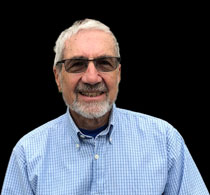Arnold L. Rosenberg - Abstraction in Education
- Keynote Speech

Arnold L. (Arny) ROSENBERG is a Distinguished University Professor Emeritus at the University of Massachusetts. His career has included: full-time positions at IBM Research, Duke University, and the University of Massachusetts; part-time teaching at Brooklyn Polytechnic Institute (now Polytechicnic Institute of New York), New York University, and Yale University; research positions at Colorado State University and Northeastern University; and sabbatical visits at the University of Toronto, the Technion (as a Lady Davis Visiting Professor), and Universite Paris-Sud (as a Fulbright Senior Research Scholar). He is a Life Fellow of the IEEE, a Lifetime Fellow of the ACM, and a member of the Society of the Sigma Xi. He is the author/coauthor of more that 180 research publications; of three books: "Graph Separators, with Applications" (with Lenny Heath of Virgina Tech); \The Pillars of Computation Theory"; soon, "Understand Mathematics, Understand Computing" (with Denis Trystram of Universite Grenoble).
It is said that if you give a person a fish, you feed him/her for a day. If you teach the person how to fish, you feed him/her for a lifetime.
This aphorism has been my roadmap, as a learner and a teacher.
Inspired by the aphorism, I strive to:
- educate rather than train
- abstract from concrete and immediate to fundamental and essential
* Inspire each student to become a mathematician or an informaticist, rather than just learn some mathematics or some informatics.
* Equipped with understanding of "why?" rather than just "how?" a student can confront new situations with courage and creativity.
- Stress the importance of data representation in computing.
Different representations ==> dramatically different algorithms - Study parallel computing via dependency dags, not programs.
Know sources of concurrency ==> recognize related computations - Understand logical complexity|e - eg., self-reference - in systems
Recognize related structures in, e.g., linguistics, logic, number theory




